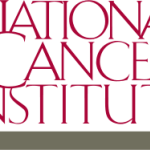- 업종: Government; Health care
- Number of terms: 6957
- Number of blossaries: 0
- Company Profile:
The National Cancer Institute (NCI) is part of the National Institutes of Health (NIH), which is one of 11 agencies that compose the Department of Health and Human Services (HHS). The NCI, established under the National Cancer Institute Act of 1937, is the Federal Government's principal agency for ...
Tea derived from the dried leaves of the plant Camellia sinensis with potential antioxidant, chemopreventive, and lipid-lowering activities. Green tea contains polyphenols that may be responsible for its chemopreventive effect. The polyphenol fraction contains mainly epigallocatechin-3-gallate (EGCG) and other catechins, such as epicatechin (EC), gallocatechin gallate (GCG), epigallocatechin (EGC), and epicatechin gallate (ECG). Green tea polyphenols act as antioxidants and free radical scavengers and may affect enzymes involved in cellular replication and tumor angiogenesis by modulating angiogenic factors, such as vascular endothelial growth factor (VEGF).
Industry:Pharmaceutical
T cells specific for the human epidermal growth factor receptor 2 (HER2) with potential immunopotentiating activity. T cells directed against HER2, overexpressed on many tumor cells, are collected from HER2-expressing tumor tissue, expanded ex vivo and, then re-introduced in the patient. Re-introduction of ex vivo-expanded HER2-specific T cells may enhance the cytotoxic T cell response against tumor cells overexpressing HER2, resulting in inhibition of tumor growth.
Industry:Pharmaceutical
Spores of Clostridium novyi-NT, an attenuated strain of the obligate anaerobe Clostridium novyi, with potential immunostimulating and oncolytic activities. Upon intravenous administration, Clostridium novyi-NT spores germinate exclusively in hypoxic tissue, such as avascular regions of tumors. Germination results in lysis and destruction of surrounding viable tumor cells. Although C. Novyi-NT spores do not proliferate in oxygenated tumor regions, they may stimulate the immune system to mount a cytolytic immune response against tumor cells, both hypoxic and well-oxygenated.
Industry:Pharmaceutical
Specifically expressed in hypothalamic neurons as a preproprotein, gonadotropin releasing hormones (GnRH family) are secreted into the median eminence capillary plexus, bind to receptors on anterior pituitary gonadotrophs, and stimulate release of LHRH and FSH gonadotropins to control female reproduction.
Industry:Pharmaceutical
Seed isolated from one of several species of the plant genus Linum. Flaxseed-derived foods, lignans, and essential fatty acids such as alpha-linolenic acid, possess anti-inflammatory, lipid-lowering, antioxidant, and antineoplastic properties.
Industry:Pharmaceutical
RevM10 is a dominant-negative mutant of HIV-1 Rev gene, which encodes a RNA-binding protein involving in nuclear trafficking of unspliced viral mRNAs. Due to the fact that Rev is essential for HIV-1 replication makes it an attractive target for antiviral approaches. Based on the notion of intracellular immunization, in vitro studies that introducing RevM10 gene into stem cells have demonstrated its ability to combat HIV-1 infection in human hematopoietic cells.
Industry:Pharmaceutical
Regulatory T cells that express CD4 and CD25 (interleukin 2 receptor) antigens, with immunomodulating activity. . CD4+CD25+ T regulatory cells (Tregs), a subset of CD4+ T cells expressing high levels of CD25 and the transcription factor Foxp3, are essential in maintaining immunologic homeostasis, preventing autoimmunity by suppressing self-reactive T cells; CD4+CD25+ Tregs may induce tolerance to allogeneic organ transplants such as hematopoetic stem cell transplants (HSCTs).
Industry:Pharmaceutical
Peripheral blood stem cells (PBSCs) transduced with the retroviral vector M87o encoding for the HIV-1-entry inhibitor peptide membrane-anchored antiviral peptide C46 (maC46). Expression of C46 by M87o-transduced CD34+ peripheral blood stem cells may prevent the fusion of viral and cellular membranes, thereby inhibiting HIV-1 entry. C46 is a membrane-anchored peptide encoding amino acids 628 to 673 of the HIV-1 entry inhibitory transmembrane glycoprotein gp41.
Industry:Pharmaceutical
Pentavalent antimony (Sb) in differential complex formation with gluconic acid with leishmanicidal and potential antineoplastic activities. The Sb moiety of sodium stibogluconate (SSG) may inhibit protein tyrosine phophorylases (PTPases) by covalently modifying sulfhydryl groups in PTPase cysteine residues, resulting in specific inactivation of SH2 domain-containing tyrosine phosphatases-1 and -2 (SHP-1 and SHP-2), PTPases which negatively regulate interferon (IFN) signaling; enhancement of IFN-induced Stat1 tyrosine phosphorylation; and induction of cellular protein tyrosine phosphorylation. SSG in combination with IFN-alpha may synergize to overcome tumor cell resistance to IFN-alpha-mediated apoptosis.
Industry:Pharmaceutical
Pan-DR epitope (PADRE) 965. 10 is a helper peptide. PADRE peptides have been shown the capacity to deliver help for antibody responses in vivo. They were also found to be able to provide significant helper T-cell activity in vivo. Acts as an adjuvant.
Industry:Pharmaceutical
